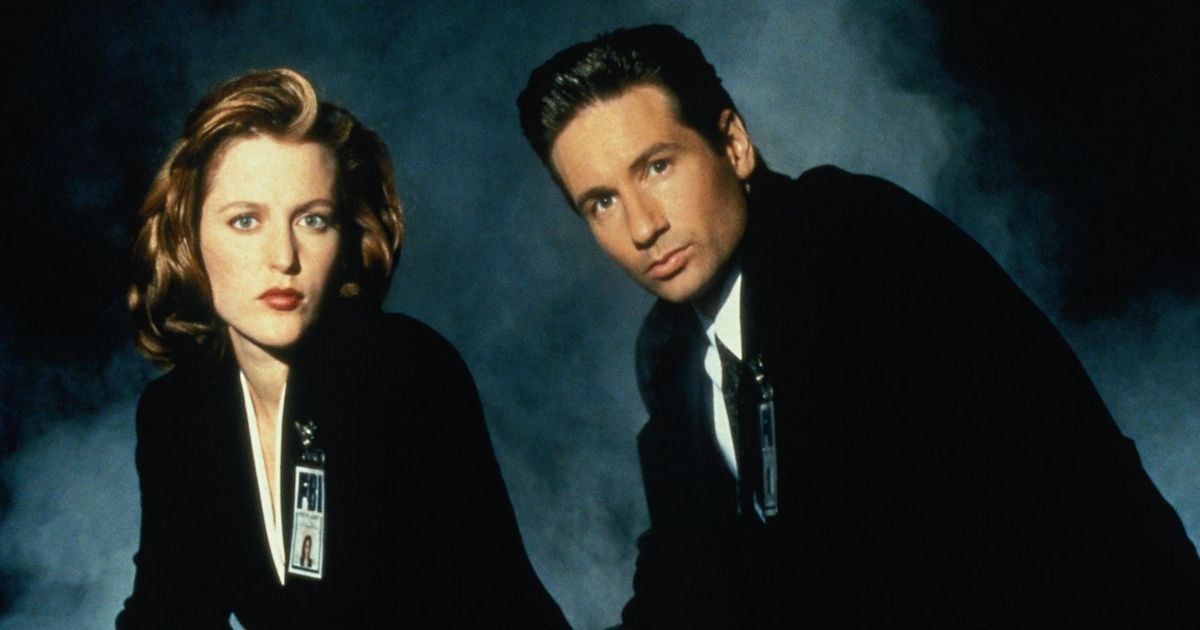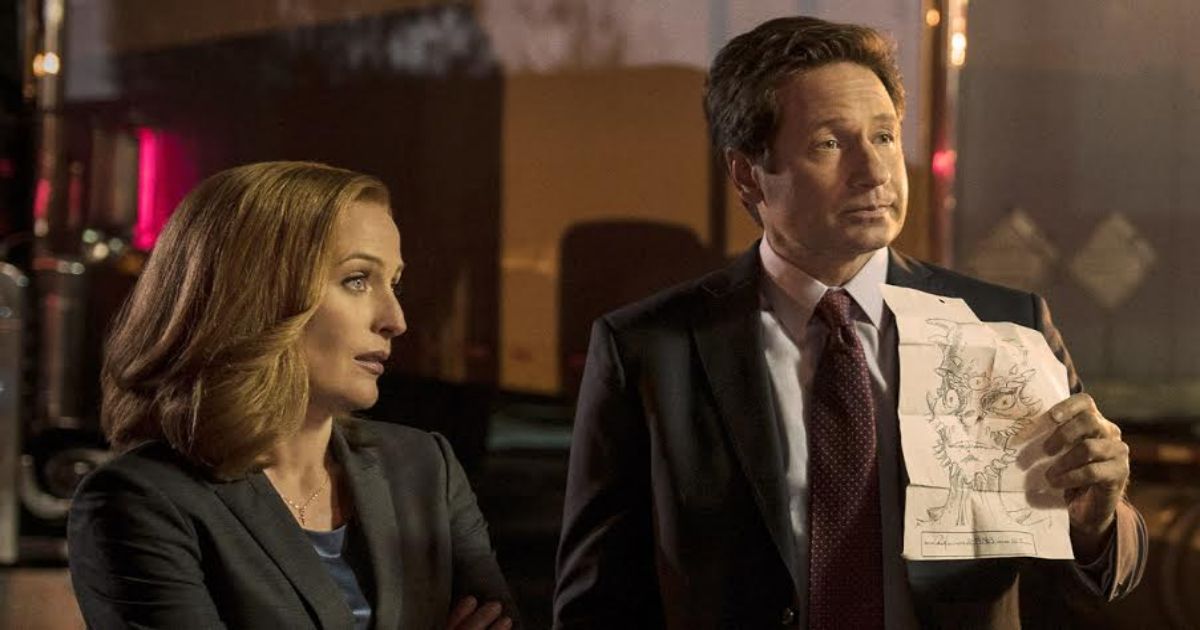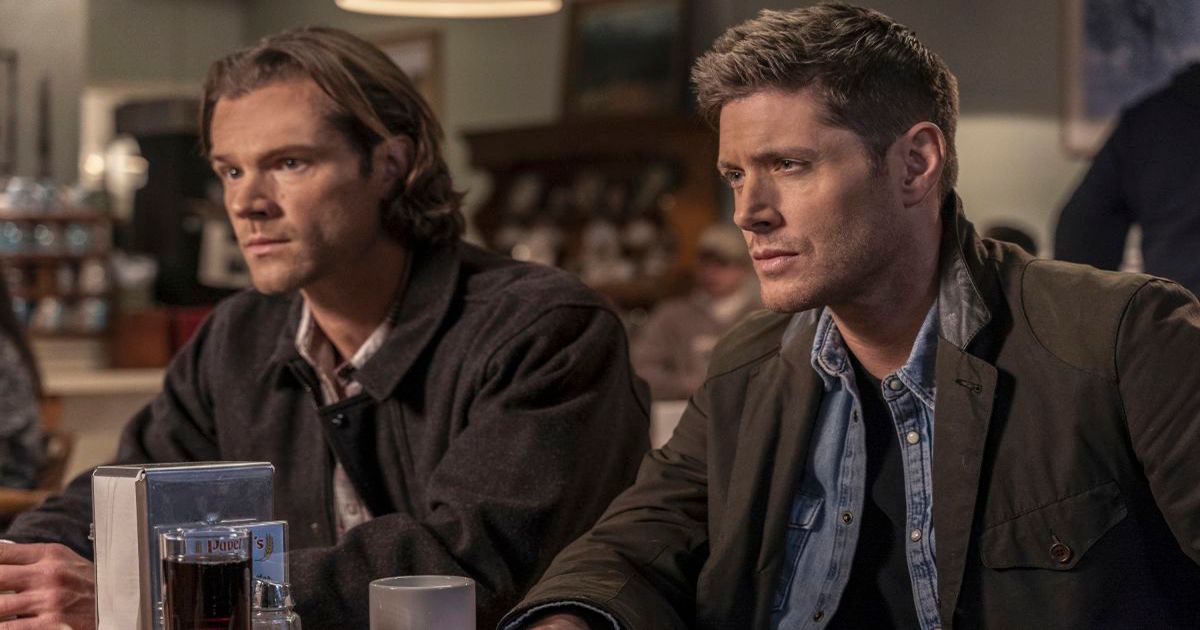There are some shows that can be considered game-changers in the history of television. Seinfeld changed the sitcom genre forever, Twin Peaks changed television as an artistic medium, and The Sopranos redefined morally gray antihero protagonists. There are some series, however, that don't generally get the recognition they deserve for creating new ways of telling a story. The 90s sci-fi sensation The X-Files is one of them.
On September 10th of 1993, the world discovered an interesting duo that was impossible not to love: Scully (Gillian Anderson) and Mulder (David Duchovny). The two FBI agents are set to investigate the most bizarre cases all around the United States. Aliens, demonic entities, and artificially intelligent computers are just some of the things they have to deal with, even if they don't get the recognition they deserve inside the bureau.
The X-Files changed a lot of things that were almost set in stone when telling a story on television, and to this day remains remarkably modern. As Emily St. James wrote for Vox, "The X-Files invented modern television." Here is how this investigative sci-fi show changed the televisual format.
A Different Type of Procedural
At the time that the show aired, most other huge television programs had something in common: they were workplace dramas. Some of the most popular ones were Law & Order and ER. However, these shows focused on the environment they were set in and then on subjects that the audience was (most likely) facing. Yes, The X-Files tackles the particular workplace the characters are in and subjects that were current, but there was definitely a focus shift on the show.
They highlighted conspiracy theories and supernatural and horror elements (something pretty rare at the time on television), embracing genre more than any other major show at the time. The monsters and the dangers they faced were extremely innovative. Also, every episode had a distinguished tone thanks to their use of a variety of great directors and writers, while still remaining true to the style of the show. The element of surprise was impressive and happened through the eleven seasons, even if some choices were not the best ones.
The show was much more serialized than other procedural shows (a case per episode) because the characters were deeply affected by what happened in the previous episodes. After Scully is abducted, she is not the same from previous seasons, and the same thing happens with Mulder, whose personality grows and relationships develop. It was a nice change that influenced other television, showing that if the audience cares about characters, they'd want to see them change and develop, rather remain the exact same character type through episodic television, resetting every episode like SImpsons characters.
Timing and Relationships in The X-Files
Timing is an important factor for any project in the entertainment industry. What subjects are brought up and how they are dealt with, the cultural and sociopolitical moment the show is set in, and the contemporary media landscape are only a few things that can make or break a story. Something that is also a major factor in a series' success: how different they are from everything else. The X-Files meets most of the criteria in a way that sets them apart in television history.
The show not only used its uniqueness at the time it was released, but how they dealt with the problems and villains of the show was deeply explored. The time frame The X-Files existed within ran parallel to the domination of the internet over everyday life (and the series tapped into this by creating one of the first big online presences for a TV show, including a message board that still runs today). With the rise of the internet came a rise in conspiracy theories, as previously fringe and niche ideas finally got the ability to proliferate wildly across the world. The paranoia, government cover-ups, and conspiracy theories embraced by this post-Watergate generation which deeply explored in the show, which seems ahead of its time in comparison to today's talk of the 'deep state' and QAnon.
Another very modern element of the show was the platonic relationship between a man and a woman. Yes, there was an incredibly high sexual tension between the protagonists that was entertaining to watch, but they only kiss in season seven and sleep together in season eleven, which is the final season. They cared deeply for one another not because they were a couple: but because they were, above anything else, partners. Their will-they-won't-they romantic relationship was not the main focus.
Dana Scully
Dana Scully was a character that changed how women were portrayed on television. Firstly, she was not a sex symbol which, in the nineties, seemed like the majority of female characters in television and movies. Not only that, but Scully had a strong personality that made her disagree with Mulder most of the time, and she was not afraid to speak her mind. The character had a clear background and motivation. Mulder saw her as an equal, and they worked together as such.
Scully was also, at least most of the time, considered by the majority of people around them more reliable and trustworthy than Mulder — something quite rare even in today's television. Her input and ideas matter, as well as her personality and intellect. She didn't have to change herself to be able to be taken seriously and do her job.
It was not only inside the small screen that she influence people. After the show aired, Scully was lauded as an example of the modern working woman; for example, the search for women in STEM programs increased. A study was performed by a partnership between 21st Century Fox, the Geena Davis Institute of Gender in Media, and J. Walter Thompson Intelligence. The study showed that at least ⅔ of women in STEM had the character of Scully as a role model and inspiration.
The X-Files Influenced Many Shows
The X-Files influenced a lot of shows since it was released, even if there hasn't been anything quite like this FBI duo on television. One of the main sources of influence came from great writers like Darin Morgan who actually started their writing careers on the show. The most famous one is X-Files writers is Vince Gilligan, who has since created two of the most excellent shows in modern television history, Breaking Bad and Better Call Saul. Another one is John Shuban, who then worked on Supernatural and even alongside Gilligan in Breaking Bad. The two partners traveling the US to fight supernatural entities in Supernatural sounds a lot like the nineties show.
There were tons of X-Files writers who went on to do big things, such as Alex Gansa (who went on to create Homeland), David Greenwalt (who co-created Angel and Grimm), James Wond (who wrote for American Horror Story), John Shiban (who wrote for Smallville, The Vampire Diaries, Breaking Bad and more), and countless others. So, not only did the show influence other television series but the very people who were writing and creating them. The X-Files is a fun and weird show that really set itself apart from everything else; beyond that, it's one of the most important television series in history for the boundaries it broke, cultural moment it tapped into, and television it inspired.





